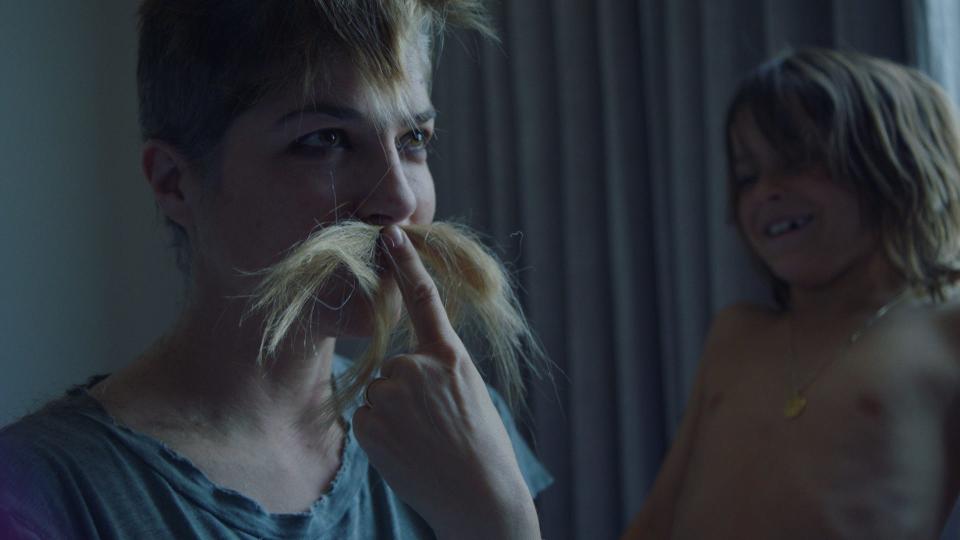'I can recover': 'Introducing, Selma Blair' star on vulnerability, her health today
Selma Blair doesn't need much of an introduction.
Moviegoers have seen her, as the inexperienced Cecile, learn to French kiss in 1999 film "Cruel Intentions" and play the cold Vivian in need of "some mascara and some serious highlights" in 2001's "Legally Blonde." Viewers of "The People v. O. J. Simpson: American Crime Story" witnessed her transform into a pre-momager Kris Jenner.
The documentary, "Introducing, Selma Blair" (in select theaters; streaming on Discovery+ Thursday) chronicles the actress's stem cell transplant to treat multiple sclerosis, a diagnosis she revealed to the public in an October 2018 Instagram post. The film gets its title from a bit Blair performed for her director Rachel Fleit en route to the 2019 Time 100 Health Summit in New York.
"It was a joke in the moment to say that. I did a little rant in the car... I think I ended on, 'Introducing, Selma Blair,' and then I realized it has been what I've been getting to because I'm finding myself ... and permission to be so vulnerable," says Blair, 49, in an interview. "And really, it's also gruesome to be so vulnerable because there will be critics. There will be people (who) say, 'You're a phony. If you wear heels and a cane, you don't have a MS'... I can take the heat if someone thinks my MS is weird, or that's not on track, or I said it the wrong way. I can take that hit to open the conversation for a lot of other people."
'I'm having the time of my life': Selma Blair on the lessons of her MS diagnosis, her raw doc
'Always here': Selma Blair shows solidarity with Christina Applegate over multiple sclerosis

With MS, the body's immune system begins attacking the central nervous system, according to the National Multiple Sclerosis Society, triggering varied neurological symptoms.
"Introducing" recounts Blair's hematopoietic stem cell transplantation in the summer of 2019. By removing and replacing stem cells and providing chemotherapy in between, the process "attempts to 'reboot' the immune system, which is responsible for damaging the brain and spinal cord in MS," the National Multiple Sclerosis Society explains. A depleted immune system opens the patient up to infections and, potentially, death.
Fleit, who has alopecia, watched with admiration as Blair moved about Chicago, where she had the transplant, without feeling a need to cover her bald head. Blair opts to shave her head in the documentary so son Arthur Saint Bleick, 10, wouldn't be surprised if she lost her hair from chemotherapy.
The 10 best new TV shows to watch this fall, from 'Wheel of Time' to 'Muhammad Ali'
The 10 best TV shows on Discovery+: From '90-Day Fiance' to 'MythBusters' to Anthony Bourdain

"I was like, damn, it took me 30 years to get here, and she was just embracing it," says Fleit. "Yes, this is a woman who has become disabled. This is a woman who has MS. But also, this is a human being who's having a very human, real experience on the screen.
"Introducing" shows Blair's fondness for drama and her clever, dry and at times dark sense of humor. When searching for a cane, she advises: "Don't get a hideous one. Google 'chic canes,' at least." At one point, she lays still, sprawled on the floor: "I'm trying to look dead for a dramatic ending," she says with a chuckle.
The film also explores Blair's complicated relationship with her mother, Molly Cooke, whose sole feedback on her first studio film, "Cruel Intentions," was "Honestly, Selma, did you have to give so much tongue?" Cooke died in May 2020, while the documentary was being shot, and Blair's feelings for her mother transformed.
"She's such a force for me, but someone that I could always make fun of (for) how strict she was. But then it felt so different when she died," she tells USA TODAY. "What was that real spirit and legacy she left behind that endures and not my childhood feelings of resentment or something (for) the mom I love too much?"
Blair doesn't shy away from the darker moments of her life, including a 2016 incident when she was removed from a plane on a stretcher after boozing on an empty stomach for days. "I had full MS at this time; I know because I was in so much pain, which is also part of the reason why I was drinking, and my mind was confused, and I was scared," she says in the film.
Getting a diagnosis was a journey. Doctors repeatedly told her she was just plagued by sadness. "You're a mom, you're overwhelmed," she says in "Introducing," which spurred self-loathing.
"I was like, 'I can't get it together. I hate myself. I cannot function,'" she recalls in the documentary. "And then I got a little depressed and didn't get out of bed."
A diagnosis offered relief, but medications weren't working. Despite a fear of chemo and some nerves, she set her sights on a stem cell transplant.
"I believed in it, and I'm so dramatic by nature, and so like, 'I'm all in, or all not' that it seemed to make sense," she says in an interview. "When I did try the chemo, I did feel better."
Blair expected results more quickly from the treatment but says she's "doing really well," and was able to take her son to school last week.
"I was so happy, and then got home and still felt energized and went outside to just blow some leaves out of the yard," she says. "And I was hit with that fatigue, that's like, 'Oh my God, I'm now gonna throw up, and I'm shaking.' I'm trying to get some food in, but I throw it up."
There's a gold rush on Britney Spears documentaries. But do they help or exploit?

She retreated to bed, her safe space, where she either falls asleep or meditates.
"I could have just as easily stayed in there 'til tomorrow," she says. But the comfort comes at a cost: the loss of strength. "Everything can so easily be a little step-down, even though I have no progression right now, supposedly. Things are going well. I think I have a good prognosis, but it still feels like I have MS."
Blair says physician, Richard Burt, told her she essentially doesn't have MS anymore. She announced in August that she's in remission with no new lesions.
Still, she battles fatigue, her greatest challenge. But she doesn't succumb to the exhaustion. "I have to (say) like, 'Let's get this, and then you're gonna make yourself jump out of bed somehow, as big as you can. Propel yourself out of bed.'"
She says with hope: "I am strong, and I'm not so far gone. With some brain damage, I can recover."
'We're so excited!': Chip and Joanna Gaines on the long-awaited debut of Magnolia Network
This article originally appeared on USA TODAY: 'Introducing, Selma Blair': Documentary recounts star's MS treatment
